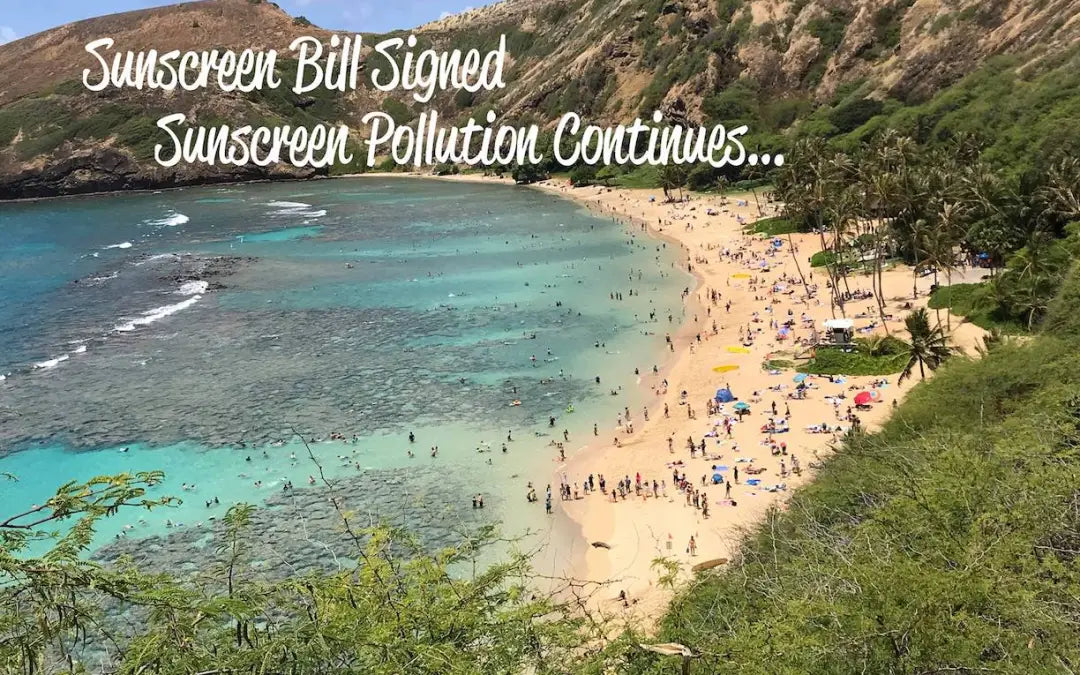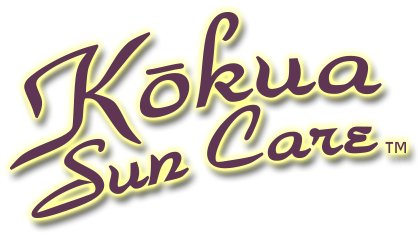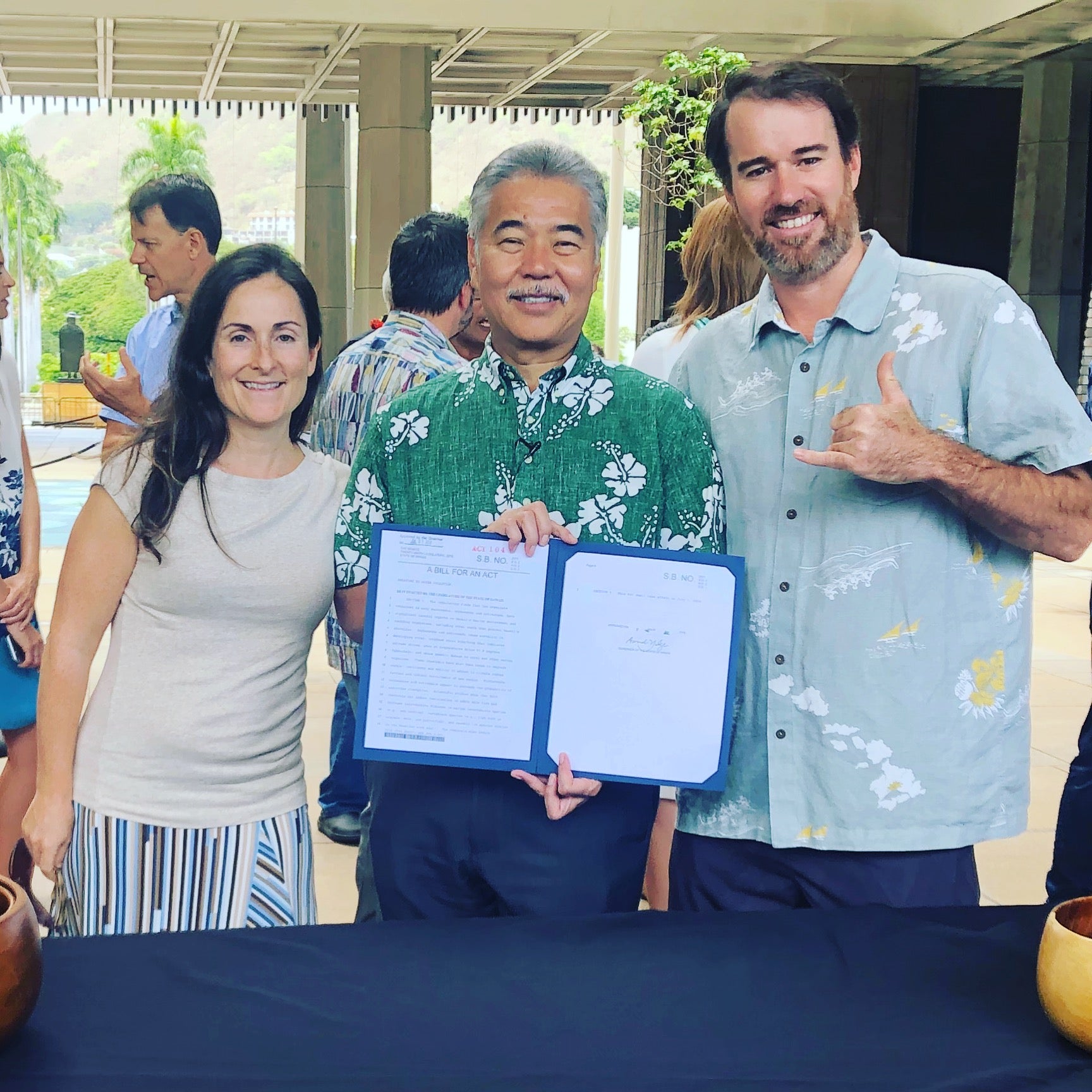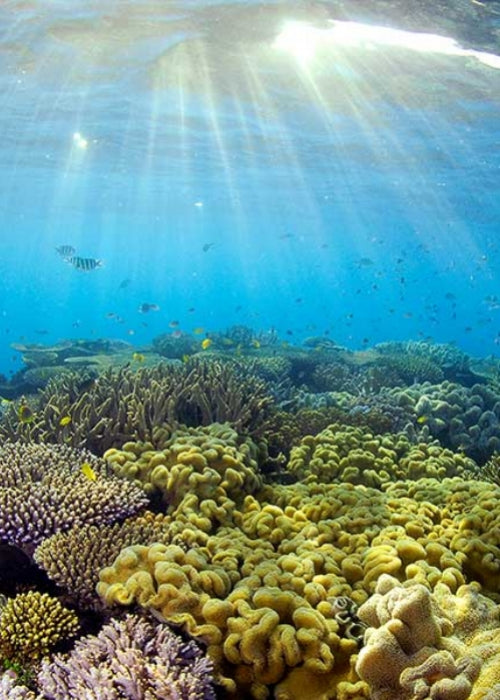The Truth About “Reef Safe” Sunscreens: What They’re Not Telling You

A recent settlement between the Federal Trade Commission (FTC) and Sun Bum, a major sunscreen brand, has brought renewed attention to a longstanding issue in the skincare industry: misleading “reef safe” claims and "green washing".
According to the FTC, Sun Bum agreed to pay $300,000 over allegations that it falsely marketed its products as safe for marine life. While the products in question did not contain oxybenzone or octinoxate, which are banned in places like Hawai‘i due to their link to coral reef damage, they still included other chemicals that have been shown to harm marine ecosystems, such as avobenzone, octocrylene, and homosalate.
This is an important moment for consumers to reconsider what “reef safe” truly means. See our older blog post here to learn more about the true meaning of "reef safe".
At Kokua Sun Care, we've been raising awareness about this issue for years. The term “reef safe” is not regulated, which has allowed some brands to avoid using only the most well-known banned ingredients while still including others that scientific studies have linked to reef and marine life harm. Sun Bum just paid for something that is perpetrated by many other major brands. In our experience, only Kokua Sun Care and a handful of others are truly reef safe and many of those are probelmatic because of the performance. Are you sick of thick, pasty, beeswax and oil based white out parties that come in metal tins lined with BPA using inferior cheap Chinese zinc mined with underpaid labor. We are!
We believe reef safety should be about more than avoiding two ingredients. That is why none of our products contain any of the 40+ chemicals that marine scientists and independent research have identified as harmful to coral reefs and ocean wildlife. We use non-nano zinc oxide as our only active ingredient, paired with natural and locally sourced antioxidants that protect both your skin and the environment. We also believe that reef safety shouldn't come at the cost of performance which is why our products don't white you out, drip in your eyes, sting your eyes, and come off with sweat or surf and most importantly, stop you from burning.
This recent FTC action is a positive step toward more transparency and accountability in sunscreen labeling. California District Attorney Jeff Rosen emphasized the significance of the judgment, stating it was the first ruling of its kind against a major sunscreen brand for false environmental claims. He noted that “consumers are looking for environmentally friendly products,” and that his office is working to protect both consumers and the environment from misleading marketing. However, there is still a long way to go. As people become more aware of the environmental impact of the products they use, it is essential that they have clear and truthful information.
We encourage you to read your labels closely, go beyond the marketing on the front of the bottle, and choose sun care that is truly safe for both your body and our planet.
At Kokua every decision we make, we work to minimize our impact and make eco and human conscious choices, from our carbon-negative Bio-Resin Sugarcane Tubes to our plant-derived (non-petroleum based) ingredients. Let's also not forget our commitment to using the purest quality, responsibly sourced, Australian Non-Nano Zinc Oxide.




Lascia un commento